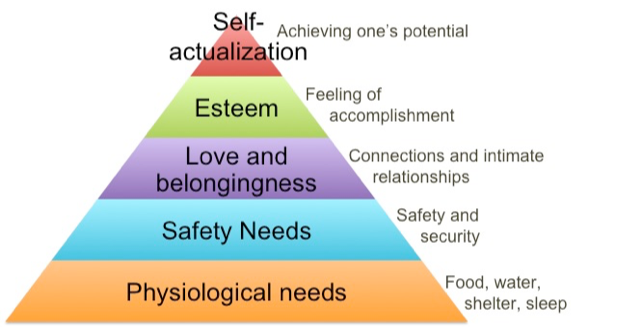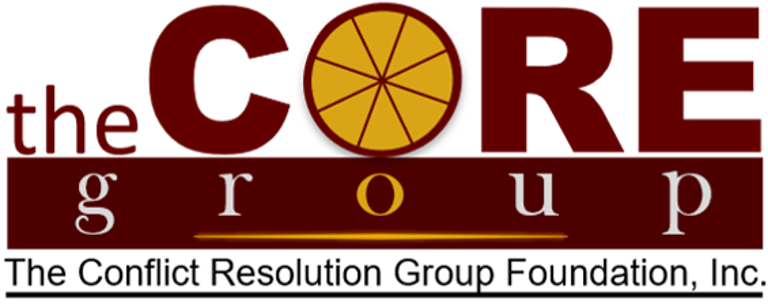I See Me, I See You
Keywords: Values in conflict resolution. personal values. organizational values. Values-based mediation. Interest based mediation. Philippine mediation. Filipino way of mediating. The Filipino mediator.
March 15, 2019
Who am I? How do people see me? Do people see me the way I want to be seen? These are among the most fundamental questions in life. It has been asked by millions of people across the globe through all these generations. I am envious of the the few lucky ones who have found the answer.
In Abraham Maslow’s Hierarchy of Needs, he points out that we can find the answer to our “ideal self” as we reach the highest level in the hierarchy – self-actualization. The illustration below shows how we begin our lives satisfying the most basic of needs – physiological needs in the form of food, water, shelter. Only when this is secure that we move up to our next motivational level. When I learned about this concept in college, self-actualization seemed like a trophy for us to achieve.
A recent bout of personal reflection taught me that self-actualization isn’t a goal. It’s not like a CEO job that you work hard for and reach through a series of job promotions. You don’t jump from one level to the other but it is actually a process where you flow seamlessly back and forth across the levels as you go through the different stages of life.
I accidentally witnessed this as I ran an experiment which we called I See Me, I See You where I caught glimpses of self-actualized individuals. Thus revising my definition of a self-actualized person. It is:
The CoRe Group designs various programs on the foundation of the Values-based Approaches. The article was written by Mia Quiaoit-Corpus.


I See Me, I See You Exercise begins with a process of self-reflection, a skill that we hope to develop in people, most especially leaders. Participants spent a few minutes to reflect on their top values based on behaviors that they typically display. As they wrote this down, they were asked to share these with two people in the room – one they know well and one they have never met before. Through the next 30 minutes, the chatter went from quiet whispers to a mix of relaxed tones and energetic storytelling.
The exercise did not have a lack of volunteers who shared their experiences. A participant eagerly started “I wish I had known (name of person) before... even before I got married...” The class laughed with some starting to tease. He continued to explain how he admired how his colleague’s values completely explained his straight-shooting persona in the office, as well as give him an insight on his parenting style. He saw how his value of transparency became the foundation for his actions. He further shares “The values he used to describe himself explained so much… I’ve known him from way back but this is the first time that I really knew the real him.”
Another participant volunteered how uneasy she felt as her partner giggled while she was sharing her values. But later felt relieved when her partner explained that she was giggling because she was amazed at how similar their answers were, it created an instant bond. “We never had the chance to get another partner because we were so engrossed with talking to each other. We had many similarities… It felt nice... like talking to my best friend... She's my new best friend!” Once strangers have now become friends.
This experiment made me realize that self-actualization happens when you least expect it. I caught glimpses of that in the moments where people spoke confidently about who they were and what they knew about themselves. In people’s faces across the room, you can sense the contentment and silent joy… and a connection that wasn’t there before.
This exercise reinforced the work of Richard Barrett, founder of the Barrett Values Centre® and former Values Coordinator at the World Bank, where he says “when you talk about your values, you are exposing your soul to the people who are listening. Consequently, being involved in a conversation with another person about your respective values is one of most intimate conversations you can have.” The benefit of I See Me, I See You goes to both communicator and receiver. Everybody who shared in the experience said it was “refreshing”, “enlightening” and “liberating” to open themselves up to a person who appreciated the importance of their values.
In this 30-minute exercise, I saw people who started out unsure of their answers – unsure of who they were. As they shared their innermost selves to others, they began to transform, “We will do this exercise in our schools and in our work because there is benefit to knowing each other… understanding each other deeper in a values-based way,” shared another participant.
This brings me back to our Circle of Humanity where we all must go through a process of self-reflection of values to understand who we are – that who we are is a component of Values we are born with, Programs brought about by our experiences, creating Attitudes that reflect our ultimate Behavior. This process of reflection leads to an increased sense of personal discovery that affects the way we see ourselves and treat others.
Off to our next experiment.
#valuesbridgeus
- one who has the ability for self-reflection
- where he/she allows himself/herself the vulnerability to reach a deeper level of understanding
- have the clarity to accept of his/her own values and needs,
- and uses this same process to understand the needs of others.
